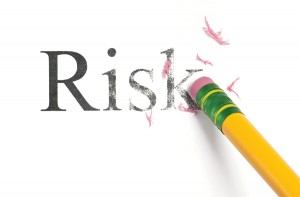 Emerging risks with the highest potential impact in coming years may not be what you think. A new Swiss Re report identified four that top the list: Large natural catastrophes, de-globalization and the resulting political conflict, financial repression policies, and challenges stemming from the “Internet of Things.”
Emerging risks with the highest potential impact in coming years may not be what you think. A new Swiss Re report identified four that top the list: Large natural catastrophes, de-globalization and the resulting political conflict, financial repression policies, and challenges stemming from the “Internet of Things.”
Swiss Re lists these as part of 21 emerging risks in its new SONAR update report. Patrick Raaflaub, Swiss Re’s chief risk officer, said that some of the emerging risks may end up being not a big deal. But insurers and reinsurers must be ready all the same, because some risks could end up being major headache, he noted in prepared remarks.
“While many of the topics presented might never materialize into significant risks,” some definitely will, Raaflaub said. “The earlier we start adapting to these changes, the better prepared we will be.”
Here are the emerging risks that Swiss Re said could have the biggest impact:
Larger natural catastrophes
The Swiss Re report frames large natural catastrophes as “major threats to the economy and society” that create significant losses. Swiss Re notes that atmospheric river events – which can cause extreme flash flooding and heavy snowfall – aren’t yet taken into account as “serious disruptors.” Volcanic eruptions have not yet been brought into the equation, either, Swiss Re said, which leave risk possibilities grossly underestimated.
“The risk of volcanic eruptions might … be underestimated as no large eruption has occurred since the 1815 Tambora eruption in Indonesia,” the Swiss Re report noted. “Even for smaller eruptions, the economic consequences could be huge, particularly if they occurred close to population centers.”
De-globalization/resulting political conflict
Swiss Re describes de-globalization as the political conflicts that have erupted in Eastern Europe, the Middle East and East Asia. The term also covers economic distress that has lead to populists and nationalist parties gaining traction. Political conflicts lead to the threat of sanctions and other policy tools that stop the flow of goods, and the rise of nationalist parties heightens the risk of protectionist regulations and legislation.
Why are these big risks? Because they go contrary to transnational advances such as the European Union, the Euro and other international treaties meant to boost economic growth.
“The post-Cold War consensus – i.e. that the global economy works best and most efficiently when the political system limits itself to principle-based regulation while fostering cooperation and competition – is fraying,” Swiss Re said in the report. “Financial services have seen much more interventionism over the last years, and other markets – such as labor and communications – may be affected going forward.”
Swiss Re said both elements could disrupt the free flow of capital and investible assets, or restrict the flow of premiums and claims payments.
Financial repression policies
Swiss Re also terms this category “the great monetary experiment,” referring to the structural deficiencies of the global economy that remain unaddressed. The report argues that traditional policies such as expansionary fiscal policy and monetary easing don’t work any more due to high debt burdens or interest rates that in many countries have dropped to zero or beyond. The end result: slow or stagnant economies in much of the developed world.
Also at issue – “extremely accommodative” monetary policies that have continued to lead to currency devaluation. Swiss Re said it is also concerned about financial policies that would spur inflation or deflation, both of which risk hurting insurers in the long run.
“Continued low interest rates strongly impact the balance sheet of conservative, large assets managers like insurers,” the report states.
Low growth also limits insurer growth, and inflation could hurt too, Swiss Re said, creating conditions such as accelerated claims inflation.
Internet of Things
The Internet of Things and the potential of big data is seen as an advance that will transform consumer experience, but also change how societies and businesses are managed.
But increased connectivity has its risks, including vulnerability in data and network security. There are also big challenges involving cyber attack risks, and the ability to keep such an infrastructure current through maintenance and software updates.
Swiss Re said that hacking and other malfunctions could adversely affect P/C policies that have some cyber coverage, plus pure cyber products in property/casualty and life/health. What’s more, regulations that address the availability of data, its usability and privacy could eventually limit big data possibilities, something that Swiss Re said could make claims handling much more difficult.
Other risks that Swiss Re identified in its report: Brazilian drought, lifestyle drugs, predictive maintenance, rising pandemics, wildfires, sinking cities, genetic engineering, energy transition, antibiotics, decaying infrastructure, hydrofracking, fossi5 fuel mismanagement, the dangers of LED light, offices of the future, traffic jams in the skies, chemicals in the environment and scarcity of raw materials.
Source: Swiss Re





















 State Farm Inked $1.5B Underwriting Profit for 2025; HO Loss Persists
State Farm Inked $1.5B Underwriting Profit for 2025; HO Loss Persists  Viewpoint: Runoff Specialists Have Evolved Into Key Strategic Partners for Insurers
Viewpoint: Runoff Specialists Have Evolved Into Key Strategic Partners for Insurers  Large Scale Cargo Ring Busted in LA, $5M Recovered
Large Scale Cargo Ring Busted in LA, $5M Recovered  From Skill to System: The Next Chapter in Insurance Claims Negotiation
From Skill to System: The Next Chapter in Insurance Claims Negotiation 











